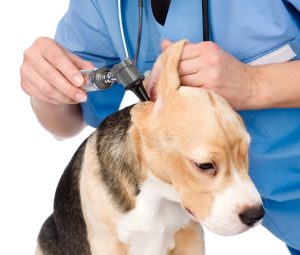 Why is fecal testing important?
Why is fecal testing important?
Parasite screening is an important diagnostic test to protect both your pet’s health and your own.
Common parasites include roundworms, hookworms, whipworms, giardia, and tape worms. Often these parasites are microscopic to the eye and can only be seen under a microscope.
Some parasites are zoonotic, which means they can be transmitted from animals to humans. Regular fecal testing allows for early detection and treatment, which help prevent potential health complications and protects yourself and your family – human and furry.
How do pets get intestinal parasites?
Pets can become infected by ingesting contaminated soil, water, or feces containing parasites eggs or larva.
Puppies and kittens are especially vulnerable, as they can contract some types of parasites from their mothers during birth or while nursing.
Signs of Infection
Common symptoms include diarrhea or loose stool, blood in stool, vomiting, pale gums, poor coat quality, bloated belly, lethargy or general poor health.
IMPORTANT: Some infected pets may not show any signs, making regular fecal testing even more important.
Preventing Parasitic Infections
PREVENTION IS KEY! Prevent rather than treat!
Administer monthly preventatives as recommended and prescribed, and regularly scoop and remove your pet’s stool from the yard to reduce the risk of contamination.
